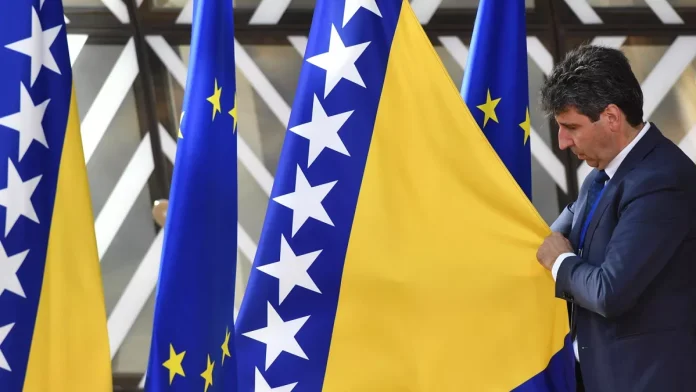The European Union has decided to increase the number of peacekeeping forces in Bosnia and Herzegovina against the background of the aggravation of the political situation between the central government of the country and the Republic of Serbian, an autonomous Serbian formation that has significant political and military independence. This step is a reaction to increased tensions in the region, which can threaten the stability and safety of the Balkan country.
On March 7, the European Union forces (EUFOR) announced their intention to temporarily increase their peacekeeping units in Bosnia and Herzegovina. The statement states that this decision is part of a proactive measure aimed at assisting the country in ensuring stability and security for all its citizens. However, specific figures on increasing the number of forces were not declared.
According to the statement, the EUFOR peacekeepers remain an "impartial" force that does not take the side in the conflict, and their presence is aimed at supporting Bosnia and Herzegovina institutions, guaranteeing security and stability in the country. The European Union continues to maintain a peaceful process that has been ongoing since 1995, after the signing of the Deyton Agreements, which has completed the Civil War in Bosnia.
The increase in the number of peacekeeping forces was a consequence of increasing political tensions, in particular, after the decision of the Constitutional Court of Bosnia and Herzegovina, which on March 7 blocked the resolution of the legislators of the Republic of Serbian on the ban on the activity of national law enforcement and judicial bodies in the region. The decisions of the legislators of the Republic of Serbian provoked significant political disputes, as it violated the Constitution of Bosnia, according to which the only national law and order should function throughout the country.
The Constitutional Court recognized the step of Serbian politicians as unconstitutional and temporarily blocked it. However, the court also stated that after full consideration, it could block this decision on a permanent basis. This decision has become an important milestone in the political struggle between the Bosnia and Herzegovina government and the leaders of the Republic of Serbian, who have repeatedly advocated increased autonomy and increasing its impact on the central government.
At this point, EUFOR has about 1500 soldiers in a multinational battalion, which is located in the capital of Sarajevo. Peacekeeping fighters come from different EU countries, including Austria, Greece, Hungary, Italy, Moldova, Northern Macedonia, Romania and Turkey. These forces ensure stability and observe the implementation of peace agreements concluded after the Civil War of 1992-1995.
The increase in the presence of EUFOR peacekeepers may be associated with the potential escalation of the tension between the government in Sarajevo and the Republic of Serbian, which increases the likelihood of political or even military incidents. The EU, as a key international player in the Balkans, tries to prevent any destabilizing factors that can lead to a new conflict or violation of the peace process.


